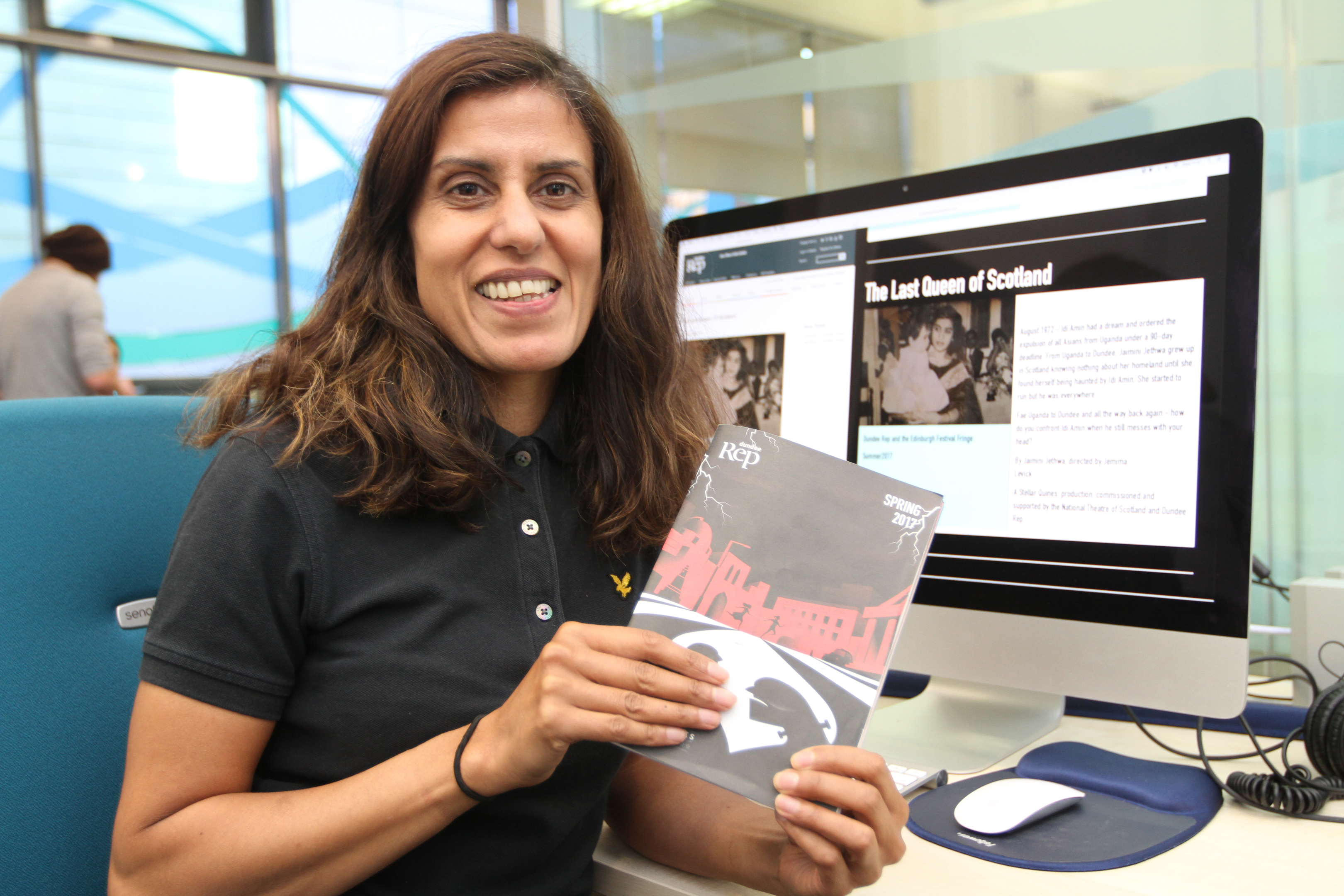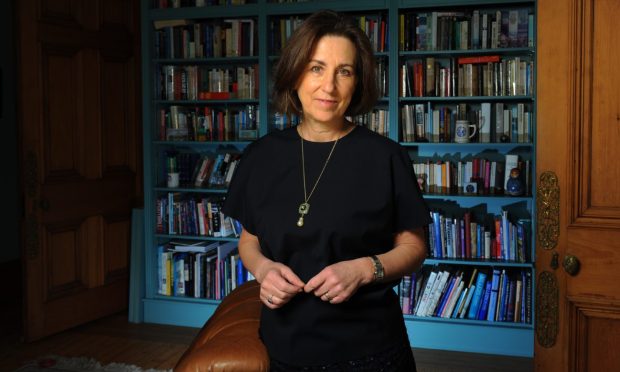In 1972, when Jaimini Jethwa was just one, Uganda was in turmoil following the coup by the country’s ruthless despot Idi Amin.
Following Amin’s order for the expulsion of all Indians from the country under a 90-day deadline, her family fled Uganda, finding themselves in Dundee.
Now, more than 40 years later, Jaimini tells her story in The Last Queen of Scotland, a one-woman play previewing at Dundee Rep before showing at the Edinburgh Fringe.
Playwright and Abertay University video producer Jaimini explains how the production – directed by the Rep’s Jemima Levick for Stellar Quines – came about.
“My original research inspired me to write the poem The Last Queen of Scotland, which takes the form of a conversation with Idi Amin and discussed his decision to expel us from our home,” she says.
“The poem provided the title and I developed the starting point for the play with the help of mentoring from National Theatre Scotland and Dundee Rep.”
The play looks at how one woman combats her demons with Idi Amin in Uganda in 1971, lands in Dundee and tries to make sense of everything that has happened, as well as the social and economic situation in both Dundee and Uganda in the 1970s.
“It sheds light on a unique period in Scotland’s social history and the particular story of a community in exile that has rarely been told,” adds Jaimina, who considers herself to be a Scot through and through, went to Craigie High School before studying film and television in London.
However, it wasn’t long before she was back in her beloved Scotland.
“I missed the culture and the Dundonian dialect and felt I was losing that in England,” she says.
In recognition of her passion for her home city, the script for The Last Queen of Scotland is written in the street sounds of the city’s dialect, accompanied by a live soundtrack.
“It’s my homage to my city, my love letter to The D,” she adds. “There have been so many tributes to the mill lavvies, to the Timex workers but I wanted to tell a story that is current and talks to a new generation about a subject close to the hearts of many.”
“I have decided to reclaim my heritage with this play,” says Jaimini. “I am saying to Idi Amin ‘You can’t have Scotland and what do you know about the country anyway?’
“When you Google Idi Amin one of the first things that comes up is The Last King of Scotland – Scotland doesn’t want that association,” says Jaimini.
“He was a potent character and although it’s hard to change history, the play chips away at his persona.”










